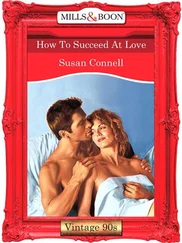Макс Нордау - How Women Love
Здесь есть возможность читать онлайн «Макс Нордау - How Women Love» весь текст электронной книги совершенно бесплатно (целиком полную версию без сокращений). В некоторых случаях можно слушать аудио, скачать через торрент в формате fb2 и присутствует краткое содержание. Жанр: Классическая проза, на английском языке. Описание произведения, (предисловие) а так же отзывы посетителей доступны на портале библиотеки ЛибКат.
- Название:How Women Love
- Автор:
- Жанр:
- Год:неизвестен
- ISBN:нет данных
- Рейтинг книги:5 / 5. Голосов: 1
-
Избранное:Добавить в избранное
- Отзывы:
-
Ваша оценка:
- 100
- 1
- 2
- 3
- 4
- 5
How Women Love: краткое содержание, описание и аннотация
Предлагаем к чтению аннотацию, описание, краткое содержание или предисловие (зависит от того, что написал сам автор книги «How Women Love»). Если вы не нашли необходимую информацию о книге — напишите в комментариях, мы постараемся отыскать её.
How Women Love — читать онлайн бесплатно полную книгу (весь текст) целиком
Ниже представлен текст книги, разбитый по страницам. Система сохранения места последней прочитанной страницы, позволяет с удобством читать онлайн бесплатно книгу «How Women Love», без необходимости каждый раз заново искать на чём Вы остановились. Поставьте закладку, и сможете в любой момент перейти на страницу, на которой закончили чтение.
Интервал:
Закладка:
Without looking round, she walked rapidly to the field where she knew that her father was working, which she reached in a quarter of an hour. He was toiling with other day-labourers in a potato-patch, pulling the ripe roots out of the ground, and when she came up was stooping over his work. He did not notice his daughter until she was standing by his side and touched him lightly on the shoulder with her finger.
Then he straightened himself, exclaiming in great astonishment:
"Panna! What is the matter?"
A glance at her made him start violently, and he added in a subdued voice:
"A misfortune? Another misfortune?"
Panna did not reply, but grasped his arm and, with long, swift strides, led him far beyond the range of hearing of the other workmen. When they had reached the edge of the field, she said softly:
"Father, Herr von Abonyi has just shot my Pista out of sheer wantonness, like a mad-dog."
The old peasant staggered back several paces as if he had been hit on the head with a club. Then his face, whose muscles had contracted till it resembled a horrible mask, flushed scarlet, he uttered a tremendous oath, and made a sudden movement as though to hurry away.
But Panna was again at his side, holding him fast.
"What are you going to do, Father?"
"There—the hoe—the dog must die—he must be killed—now—at once—I’ll run in—I’ll split his head—die—the dog," he panted, trying to wrench himself from his daughter’s strong grasp.
The latter held him still more firmly.
"No, Father," she said, "try to be calm. I am quiet. Rage has never been a good counsellor to us. I thought you would take it so, and therefore I wanted to tell you myself, before you heard it from others."
The old man swore and struggled, but Panna would not release him.
"Father, be sensible, we are not living among robbers, an innocent man is not shot down unpunished. You need not split his lordship’s head, another will do that, a greater person than you or he. There is a law, there is a court of justice."
Her father grew calmer, his distorted face began to relax. Panna now released his arm, sat down on the boundary-stone beside which they had been standing, and, gazing fixedly at the ground, while rolling the hem of her apron between her fingers, she continued, speaking more to herself than to him,
"We certainly know best that punishment will not fail. They shot our poor Marczi, and he only gave a man a blow. If you ever had a little quarrel with any one in the tavern, they imprisoned you for weeks and months. I, too, have atoned for the crime I committed; nothing remains unpunished, and the nobleman will get his deserts, as we have always received ours."
The sun was setting, and the notes of the vesper-bell echoed from the distance. The old man picked up his hoe, which he had left in the furrow and, lost in thought, walked home with his daughter in silence. Panna prepared the bed she had used when a girl in her father’s hut, and went to rest early. It is not probable that she slept during the night. At least she was already completely dressed when, very early the next morning, the parish-beadle knocked at the door of the hut, and it was she who opened it.
He asked for the key of her house, because the corpse must be carried to the town-hall.
"Why?"
"Because, early in the forenoon, the committee and the district physician will come from the city to hold the coroner’s inquest."
"Will he be present?"
"Who?"
"The—Herr von Abonyi."
The beadle shrugged his shoulders and said,
"I don’t know."
Panna did not give up the key, but went with the beadle herself, and was present when the latter appeared, with three other men and a bier, and bore the corpse away.
The coachman Janos, and another servant, also came to fetch the wheels and poles on which they had brought the dead man home the day before, and which belonged to the castle. Panna locked her door behind them, and followed the corpse to the town-hall.
In the centre of the court stood a long black table, surrounded with all sorts of pails and various utensils, and near it a small one with writing materials and a chair before it. Meanwhile the body was left on the bier beside the table and covered with a horse-blanket. A great crowd of people, among them many women, and even little children, flocked into the building in a very short time, thronged about the bier, the black table, and Panna, who was leaning against it, carrying on a low, eager hum of conversation till it seemed as though countless swarms of bumble-bees were buzzing through the air.
About eight o’clock two carriages drove up, from which descended five dusty gentlemen, dressed in the fashion of the city, and a servant. These were the examining magistrate, the prosecuting attorney, the district physician, a lawyer, and a clerk of the court, then the beadle, who carried a box containing the dissecting instruments. In the absence of the parish-magistrate—it was remembered that Abonyi held this office—the gentlemen were received by the village notary (parish clerk) and ushered into the interior of the building, where an abundant breakfast awaited them. Meanwhile the people were dismissed from the courtyard, and as the mere request did not induce them to move fast enough, were urged forward with gentle force, after which the gate was closed and bolted on the inside. Panna had been obliged to go out with the others, but she would not leave the spot, where she was joined by her father, though she entreated him to return home or go to his work in the field and not meddle with anything.
At nine o’clock the little funeral-bell in the church-steeple began to toll, and at the same time the post-mortem examination took place, but did not last long, as it was only necessary to open the cavity of the skull. The investigation proved that the missile, a lead, cone-shaped bullet of large calibre, had entered above the left eye, torn its way through the left-half of the brain in a curve passing from above to the lower portion within, and lodged in the pons vorolii. Under such circumstances, death must have been instantaneous.
When all was over, the beadle again opened the gate and admitted the curious throng. The village notary went to Panna and asked whether she wished to have the funeral from the town-hall, or from her own house. She decided in favor of the latter plan, and the notary gave the necessary orders to the beadle. A coffin had been ordered by the gardener the day before, and was ready for delivery. Some old women offered to attend to dressing the body and preparing it for burial, notifying the clergyman, etc., so Panna was spared all the mournful business details which demand attention from a crushed spirit at a moment when it is so incapable of forming any sensible, practical conclusions, and could therefore remain near the committee.
After the post-mortem examination was over, the members went to view the scene of the deed. Panna followed, and was silently permitted to do so by the beadle and the constable, while the throng of villagers was kept back. A mist dimmed Panna’s eyes, when she saw the place where the crime was committed, but she bore up bravely and watched the proceedings around her with the utmost attention.
The gentlemen entered the coach-house and, standing at the door, she could hear the physician say that he thought he noticed blood-stains on the floor. The examining magistrate sketched a slight plan of the place in his note-book, and ordered Janos and the gardener, who were in the vicinity, to be brought in by the beadle. They were required to point out the places where they were standing at the time of the misfortune, and to briefly relate in turn the details of the story, during which the prosecuting attorney and the lawyer for the defense made notes. All this afforded Panna infinite satisfaction. She felt her heart grow lighter, and became calm, almost cheerful. A voice in her soul said: "There—there is justice!" and every letter which the gentlemen, with swiftly moving pencils, scrawled on the paper, seemed to her a link in the steel chain which was being forged before her eyes, ever longer and heavier, and would serve to drag the criminal fettered before the tribunal.
Читать дальшеИнтервал:
Закладка:
Похожие книги на «How Women Love»
Представляем Вашему вниманию похожие книги на «How Women Love» списком для выбора. Мы отобрали схожую по названию и смыслу литературу в надежде предоставить читателям больше вариантов отыскать новые, интересные, ещё непрочитанные произведения.
Обсуждение, отзывы о книге «How Women Love» и просто собственные мнения читателей. Оставьте ваши комментарии, напишите, что Вы думаете о произведении, его смысле или главных героях. Укажите что конкретно понравилось, а что нет, и почему Вы так считаете.











